



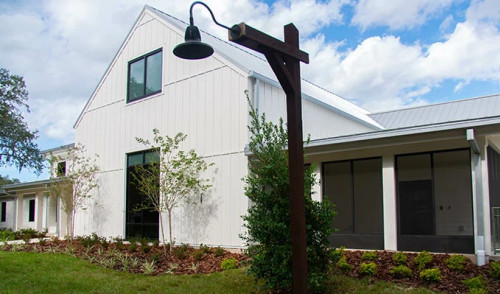




The Refuge A Healing Place
Verified Center
This provider's information has been quality-checked by Recovery.com's Research Team for accuracy and completeness, including center verification through appropriate third-party organizations.
Treatment Focus
This center treats substance use disorders and mental health conditions. You'll receive individualized care catered to your unique situation and diagnosis, learn practical skills for recovery, and make new connections in a restorative environment.
Primary Level of Care
Offering intensive care with 24/7 monitoring, residential treatment is typically 30 days and can cover multiple levels of care. Length can range from 14 to 90 days typically.
Treatment Focus
This center treats substance use disorders and mental health conditions. You'll receive individualized care catered to your unique situation and diagnosis, learn practical skills for recovery, and make new connections in a restorative environment.
Primary Level of Care
Offering intensive care with 24/7 monitoring, residential treatment is typically 30 days and can cover multiple levels of care. Length can range from 14 to 90 days typically.
Provider's Policy
Please call our admissions team for more information on insurance coverage. A knowledgeable member of our team can answer any financial questions you might have, and they can also reach out directly to your insurance carrier to verify and maximize your benefits. This service is free and puts you under no obligation to choose our programming.
The Refuge A Healing Place
The Refuge A Healing Place
About The Refuge A Healing Place
The Refuge, a Healing Place (The Refuge) provides residential and day treatment for addiction, mental health, and trauma/PTSD. They’re on 90+ acres and treat co-occurring depression, anxiety, bipolar disorder, self-harm, and process addictions. Their treatment focuses on the client’s needs, the 12 Steps, trauma recovery, and aftercare.
Expert Staff, Evidence-Based Therapies
The Refuge employs a range of staff with experience and compassion. Their team includes psychologists, psychiatrists, physicians, social workers, nurses, therapists, and counselors. Clients have weekly individual therapy and multiple group therapies each week. The Refuge’s therapies include cognitive behavioral therapy (CBT), dialectical behavioral therapy (DBT), acceptance and commitment therapy (ACT), 12 Step meetings, eye movement desensitization and reprocessing (EMDR), interpersonal therapy, exposure therapy, and mindfulness-based cognitive therapy.
Comprehensive Treatment Programs
The Refuge treats addiction, starting with medically monitored detox and medication-assisted treatment (MAT) as needed. Clients begin therapy as soon as they feel able. The Refuge offers treatment for substance and alcohol addictions and process addictions. Along with addiction, The Refuge treats primary or co-occurring mental health conditions like anxiety, depression, bipolar disorder, and self-harm. Clients seeking eating disorder recovery reside in the Oak House, which houses 16 residents at a time.
Peace And Privacy
The Refuge offers an inclusive environment for pregnant women and LGBTQ+ clients. Clients live with a roommate in a cozy cabin on The Refuge’s property. Treatment buildings and clinical buildings offer comfortable spaces to receive treatment. When not in therapy or 12-Step meetings, clients can enjoy trauma-informed yoga, art therapy, creative expression, a ropes course, journaling, horseback riding, walking meditative trails, and winding through a labyrinth.
Highlights from the Center
Highlights
These highlights are provided by and paid for by the center.
Equine Therapy
Nature Lovers
On-site Medical Detox
Master's Level Therapists
Center Overview
Treatment Focus
This center treats substance use disorders and mental health conditions. You'll receive individualized care catered to your unique situation and diagnosis, learn practical skills for recovery, and make new connections in a restorative environment.
CARF Accredited
CARF stands for the Commission on Accreditation of Rehabilitation Facilities. It's an independent, non-profit organization that provides accreditation services for a variety of healthcare services. To be accredited means that the program meets their standards for quality, effectiveness, and person-centered care.
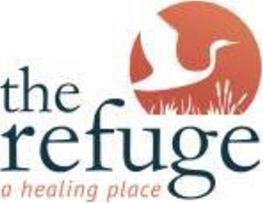
The Refuge A Healing Place
Insurance Accepted
Cash Pay Rates
Estimated Cash Pay Rate
Center pricing can vary based on program and length of stay. Contact the center for more information. Recovery.com strives for price transparency so you can make an informed decision.




Recovery.com Verified Listing
Recovery.com verified that the name, location, contact information and license to operate for this treatment provider are valid and up-to-date.

CARF Accredited

Licensed

NAATP Member
Recovery.com is an independent, third-party mental health resource. Verification does not imply endorsement and does not guarantee the quality of treatment services.
Meet Your Care Team

Peter Pennington
Chief Executive Officer

Latarsha Carter - Robinson
Advanced Practice Registered Nurse - Psychiatric
APRN

Margarette Pierre Louis
Advanced Practice Registered Nurse - Medical
APRN

Dr. Carol Burrell-Jackson
Therapist
MSW, PH.D., LCSW

Mabel Melendez
Therapist
MFT

Holly Harris
Counselor
MA

Krista Wagner
Therapist
LMHC

Kasey Ekenstam
Dietician
RD

Dr. Scott Kunce
Medical Director
Board Certified in ABPN, AOAAM

Jeanine Ballantine
Chief Financial Officer
MSFA

Ana Pabon
Nursing Director
RN

Monique Findley
Advanced Registered Nurse Practitioner
ARNP, DNP

Tonya Rezmer
Psychiatric Mental Health Nurse Practitioner
DNP, PMHNP-BC

Mike Ransaw
Clinical Director
ED.S, MS, LMHC
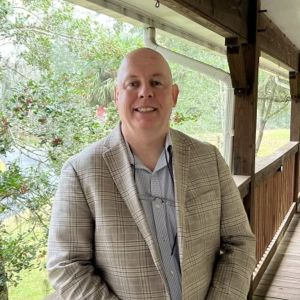
Raymond Gannon
Clinical Program Manager
LMHC-QS

Jillian Davis
Therapist
RMHCI
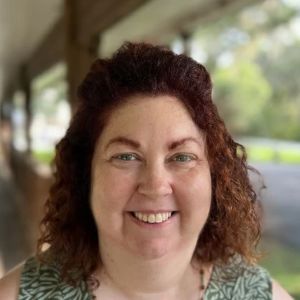
Laura Roland
Therapist
LMHC, EMDR
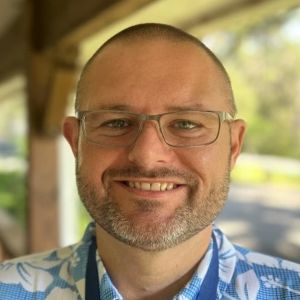
Scott Ledford
Therapist
RMHCI

Alex Van Dyke
Therapist
RMHCI

Anderson Frederick
Therapist
LCSW, Qualified Supervisor CSW

Keron Shand
Therapist
RCWSI, EMDR Trained

Christine Rios
Therapist
LMHC

Kelly Mariano
Art Therapist

Kimberly Sauer
Equine Therapist

Ana Hernandez
Yoga & Wellness Therapist
E-RYT
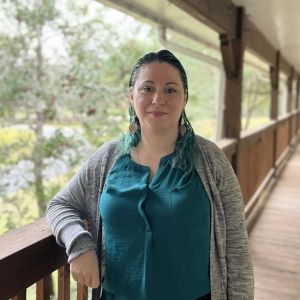
Jennifer DeLazzari
Therapist
Your Care Options
Specializations
Grief and Loss
Grief is a natural reaction to loss, but severe grief can interfere with your ability to function. You can get treatment for this condition.
Co-Occurring Disorders
A person with multiple mental health diagnoses, such as addiction and depression, has co-occurring disorders also called dual diagnosis.
Depression
Symptoms of depression may include fatigue, a sense of numbness, and loss of interest in activities. This condition can range from mild to severe.
Eating Disorders
An eating disorder is a long-term pattern of unhealthy behavior relating to food. Most people with eating disorders have a distorted self-image.
Holistic
A non-medicinal, wellness-focused approach that aims to align the mind, body, and spirit for deep and lasting healing.
LGBTQ+
Addiction and mental illnesses in the LGBTQ+ community must be treated with an affirming, safe, and relevant approach, which many centers provide.
Post Traumatic Stress Disorder
PTSD is a long-term mental health issue caused by a disturbing event or events. Symptoms include anxiety, dissociation, flashbacks, and intrusive thoughts.
Trauma
Some traumatic events are so disturbing that they cause long-term mental health problems. Those ongoing issues can also be referred to as "trauma."
Who We Treat
Young Adults
Emerging adults ages 18-25 receive treatment catered to the unique challenges of early adulthood, like college, risky behaviors, and vocational struggles.
LGBTQ+
Addiction and mental illnesses in the LGBTQ+ community must be treated with an affirming, safe, and relevant approach, which many centers provide.
Pregnant Women
Addiction and mental health treatment meets the clinical and psychological needs of pregnant women, ensuring they receive optimal care in all areas.
Professionals
Busy, high-ranking professionals get the personalized treatment they need with greater accommodations for work, privacy, and outside communication.
Veterans
Patients who completed active military duty receive specialized treatment focused on trauma, grief, loss, and finding a new work-life balance.
Women only
Women attend treatment in a gender-specific facility, with treatment delivered in a safe, nourishing, and supportive environment for greater comfort.
Treatment Services
Day Treatment
In a PHP, patients live at home but follow an intensive schedule of treatment. Most programs require you to be on-site for about 40 hours per week.
Detox
Detox fully and safely removes toxic substances from the body, allowing the next steps in treatment to begin with a clean slate.
Licensed Primary Mental Health
Some primary care providers offer mental health diagnosis and treatment. This can prevent patients from developing more serious conditions.
Outpatient
During outpatient rehab, patients attend a structured treatment program while continuing to live at home.
Residential
In a residential rehab program, patients live onsite, with access to daily treatment and 24-hour care. An average stay is 30-90 days.
Approaches
Evidence-Based
A combination of scientifically rooted therapies and treatments make up evidence-based care, defined by their measured and proven results.
Medical
Medical addiction treatment uses approved medications to manage withdrawals and cravings, and to treat contributing mental health conditions.
Twelve Step
Incorporating spirituality, community, and responsibility, 12-Step philosophies prioritize the guidance of a Higher Power and a continuation of 12-Step practices.
Therapies
1-on-1 Counseling
Patient and therapist meet 1-on-1 to work through difficult emotions and behavioral challenges in a personal, private setting.
Meditation & Mindfulness
A practiced state of mind that brings patients to the present. It allows them to become fully aware of themselves, their feelings, and the present moment.
Transcranial Magnetic Stimulation
Localized magnetic pulses stimulate areas of the brain to increase brain activity and reduce abnormal functions.
Adventure Therapy
This experiential approach uses the physical and emotional challenges of outdoor activities as tools for personal growth.
Art Therapy
Visual art invites patients to examine the emotions within their work, focusing on the process of creativity and its gentle therapeutic power.
Body Image Therapy
Therapists use cognitive behavior techniques to challenge how patients perceive their body and their worth, rewriting negative thoughts and attitudes.
Equine Therapy
Guided interactions with trained horses, their handler, and a therapist can help patients improve their self-esteem, trust, empathy, and social skills.
Conditions We Treat
Pornography Addiction
A person with a porn addiction is emotionally dependent on pornography to the point that it interferes with their daily life and relationships.
Grief and Loss
Grief is a natural reaction to loss, but severe grief can interfere with your ability to function. You can get treatment for this condition.
Personality Disorders
Personality disorders destabilize the way a person thinks, feels, and behaves. If untreated, they can undermine relationships and lead to severe distress.
Anger
Although anger itself isn't a disorder, it can get out of hand. If this feeling interferes with your relationships and daily functioning, treatment can help.
Anxiety
Anxiety is a common mental health condition that can include excessive worry, panic attacks, physical tension, and increased blood pressure.
Bipolar
This mental health condition is characterized by extreme mood swings between depression, mania, and remission.
Codependency
Codependency is a pattern of emotional dependence and controlling behavior. It's most common among people with addicted loved ones.
Depression
Symptoms of depression may include fatigue, a sense of numbness, and loss of interest in activities. This condition can range from mild to severe.
Eating Disorders
An eating disorder is a long-term pattern of unhealthy behavior relating to food. Most people with eating disorders have a distorted self-image.
Substances We Treat
Alcohol
Using alcohol as a coping mechanism, or drinking excessively throughout the week, signals an alcohol use disorder.
Benzodiazepines
Benzodiazepines are prescribed to treat anxiety and sleep issues. They are highly habit forming, and their abuse can cause mood changes and poor judgement.
Co-Occurring Disorders
A person with multiple mental health diagnoses, such as addiction and depression, has co-occurring disorders also called dual diagnosis.
Cocaine
Cocaine is a stimulant with euphoric effects. Agitation, muscle ticks, psychosis, and heart issues are common symptoms of cocaine abuse.
Drug Addiction
Drug addiction is the excessive and repetitive use of substances, despite harmful consequences to a person's life, health, and relationships.
Ecstasy
Ecstasy is a stimulant that causes intense euphoria and heightened awareness. Abuse of this drug can trigger depression, insomnia, and memory problems.
Heroin
Heroin is a highly addictive and illegal opioid. It can cause insomnia, collapsed veins, heart issues, and additional mental health issues.
Psychedelics
Hallucinogenic drugs—like LSD—cause euphoria and increased sensory experiences. When abused, they can lead to depression and psychosis.
Languages
Aftercare
Care Designed for Your Needs
Personal Amenities
Amenities
Special Considerations
First Responders Program
Paramedics, police officers, firefighters, and others join in a specific First Responders program, usually focused on trauma, grief, and work-life balance.
Activities
Yoga
Yoga is both a physical and spiritual practice. It includes a flow of movement, breathing techniques, and meditation.

Learn More About the Center
More About The Refuge
Learn more about The Refuge, including their mission and treatment assignments.
Client Testimonials
See what others have to say about their experience at The Refuge.
The Location
Discover more about what The Refuge’s unique location has to offer.
Partnerships for Suicide Prevention
The Jason Foundation, Inc. partnered with The Refuge to offer additional resources and education.
What people are saying
Treatment
3.4
Accommodations
3.9
Food & Nutrition
4.0
Value
3.9
Confidential
Reviewed 04/28/25
Review from Rehabs.com
KG
Reviewed 05/27/15
Review from Rehabs.com
Anon
Reviewed 02/07/16
Review from Rehabs.com
SF
Reviewed 06/17/16
Review from Rehabs.com
J L C
Reviewed 05/16/16
Review from Rehabs.com





